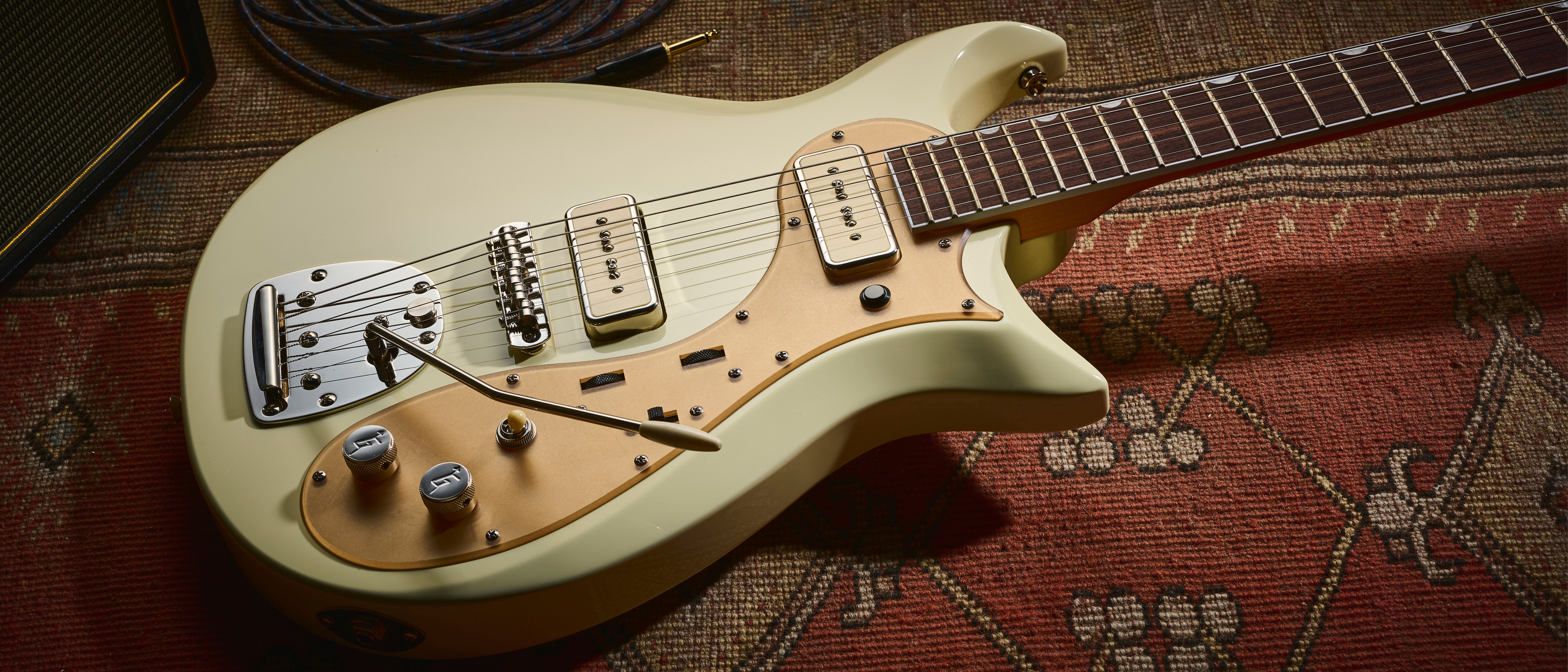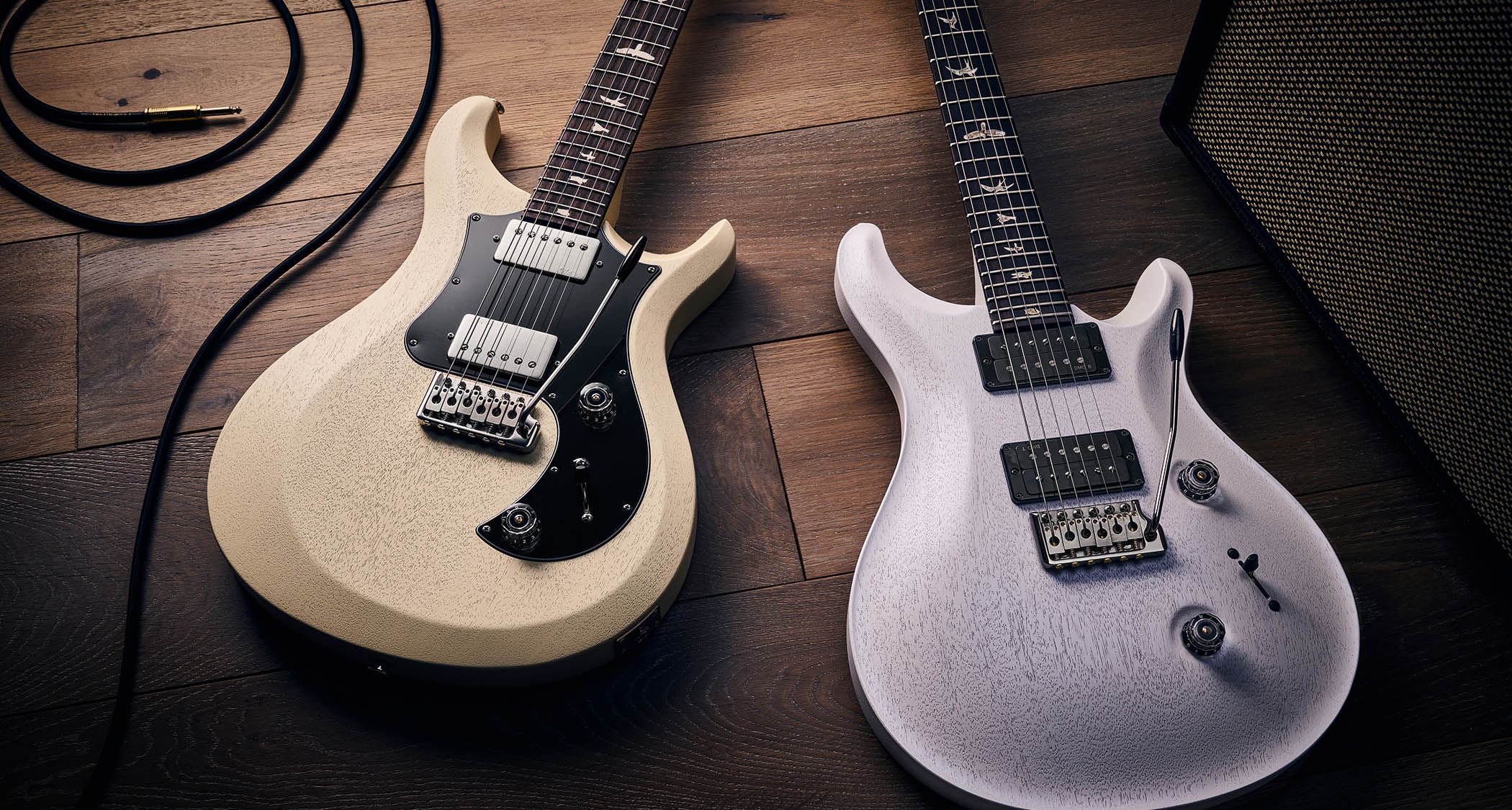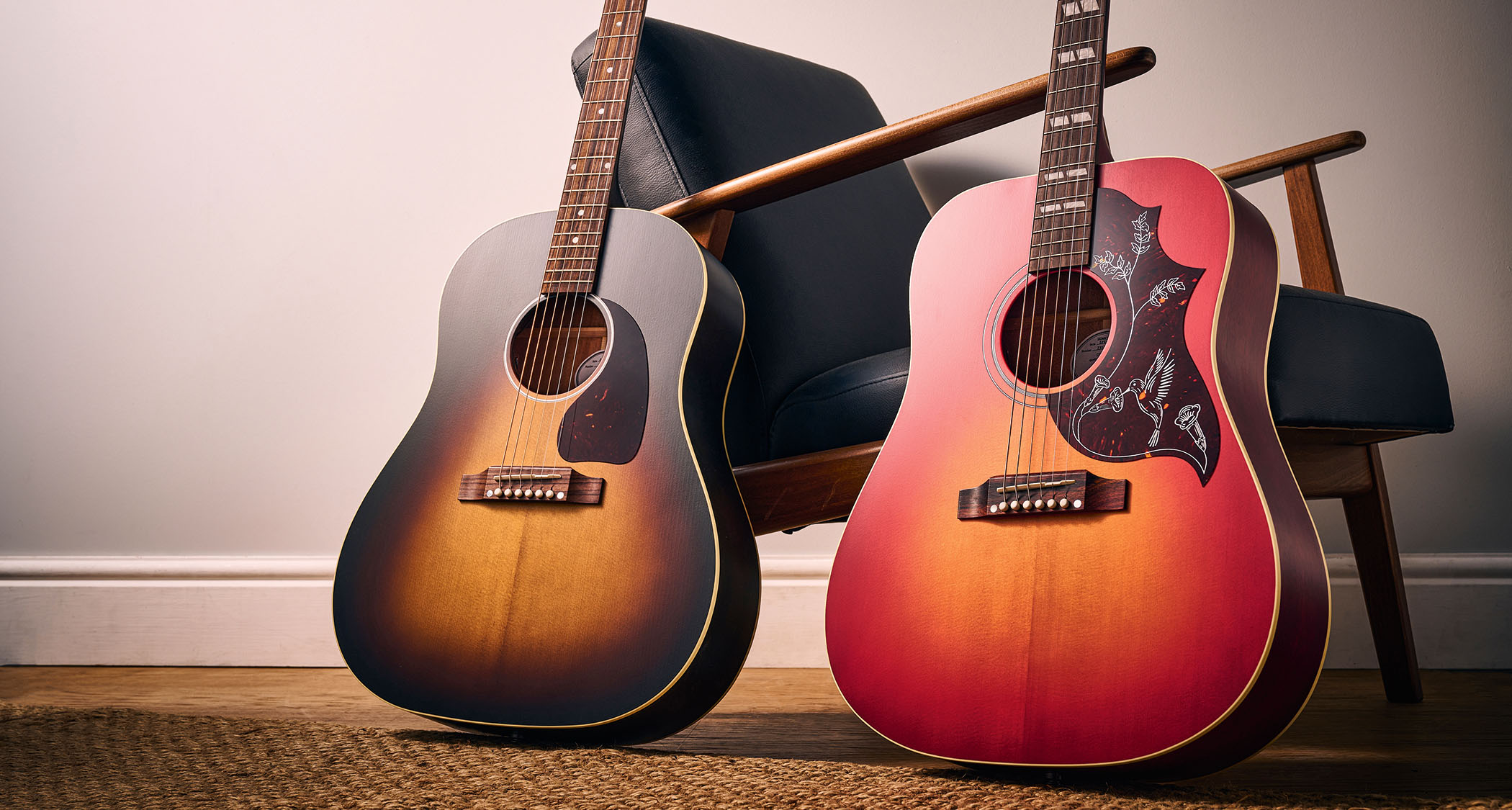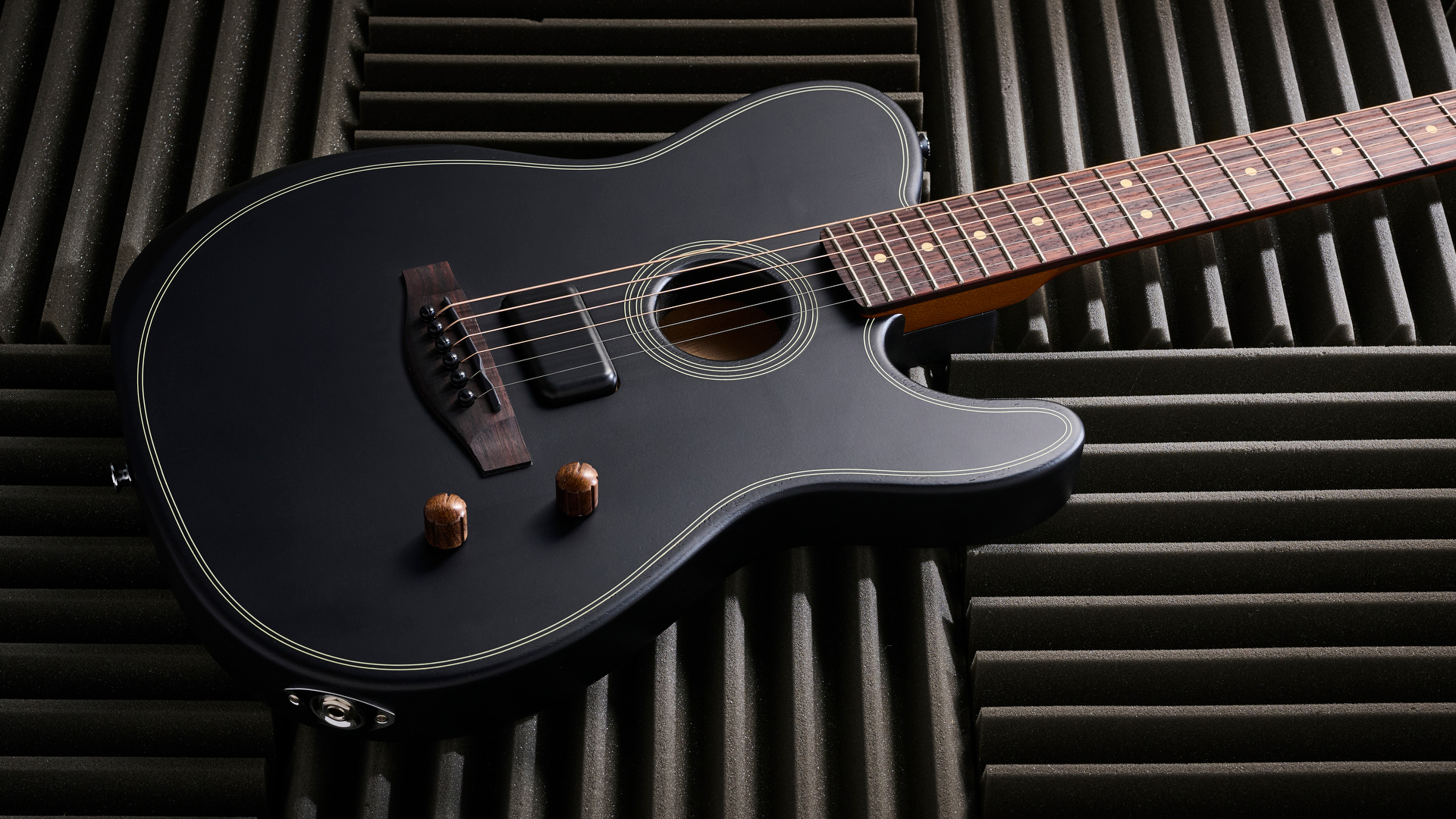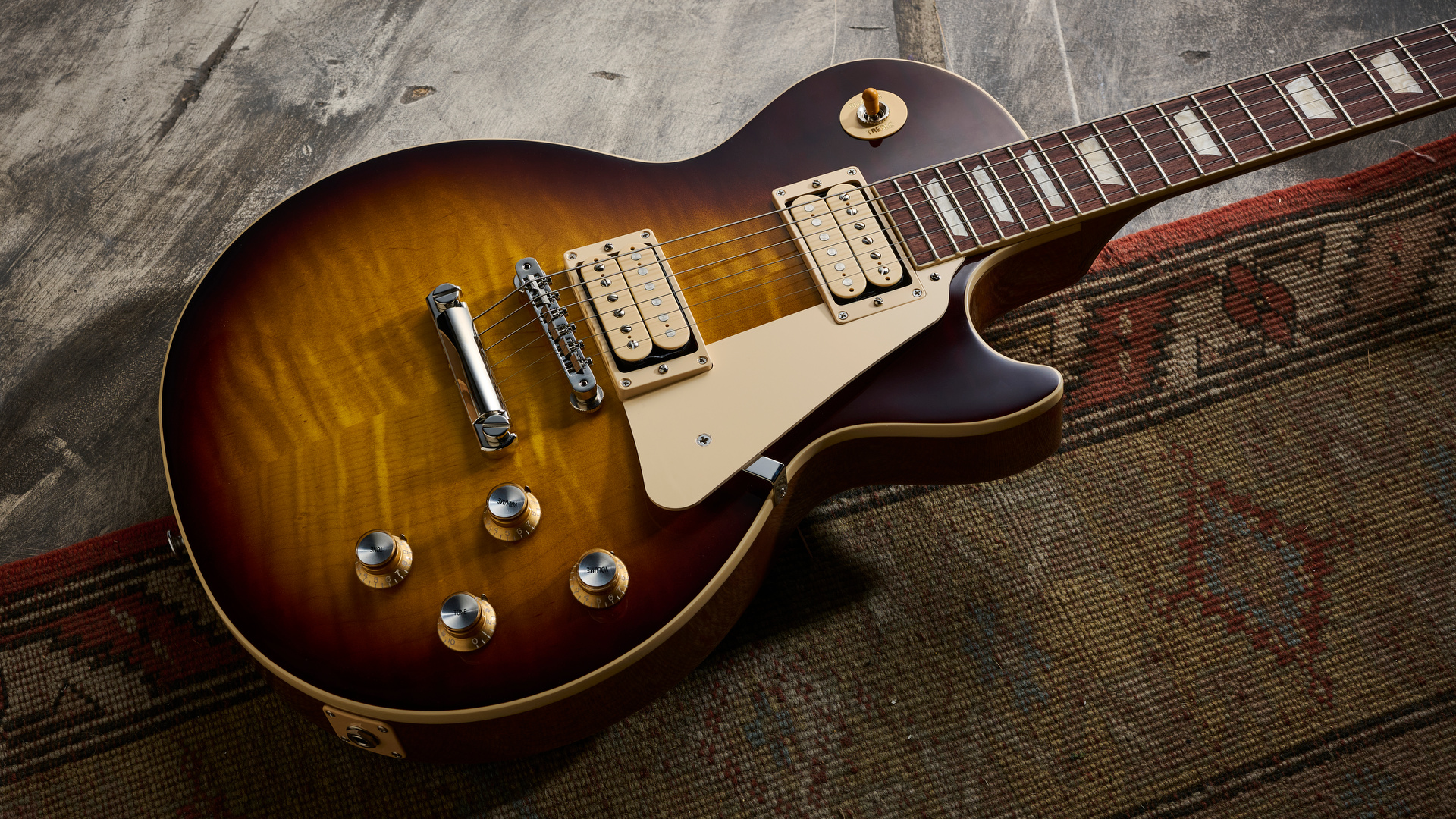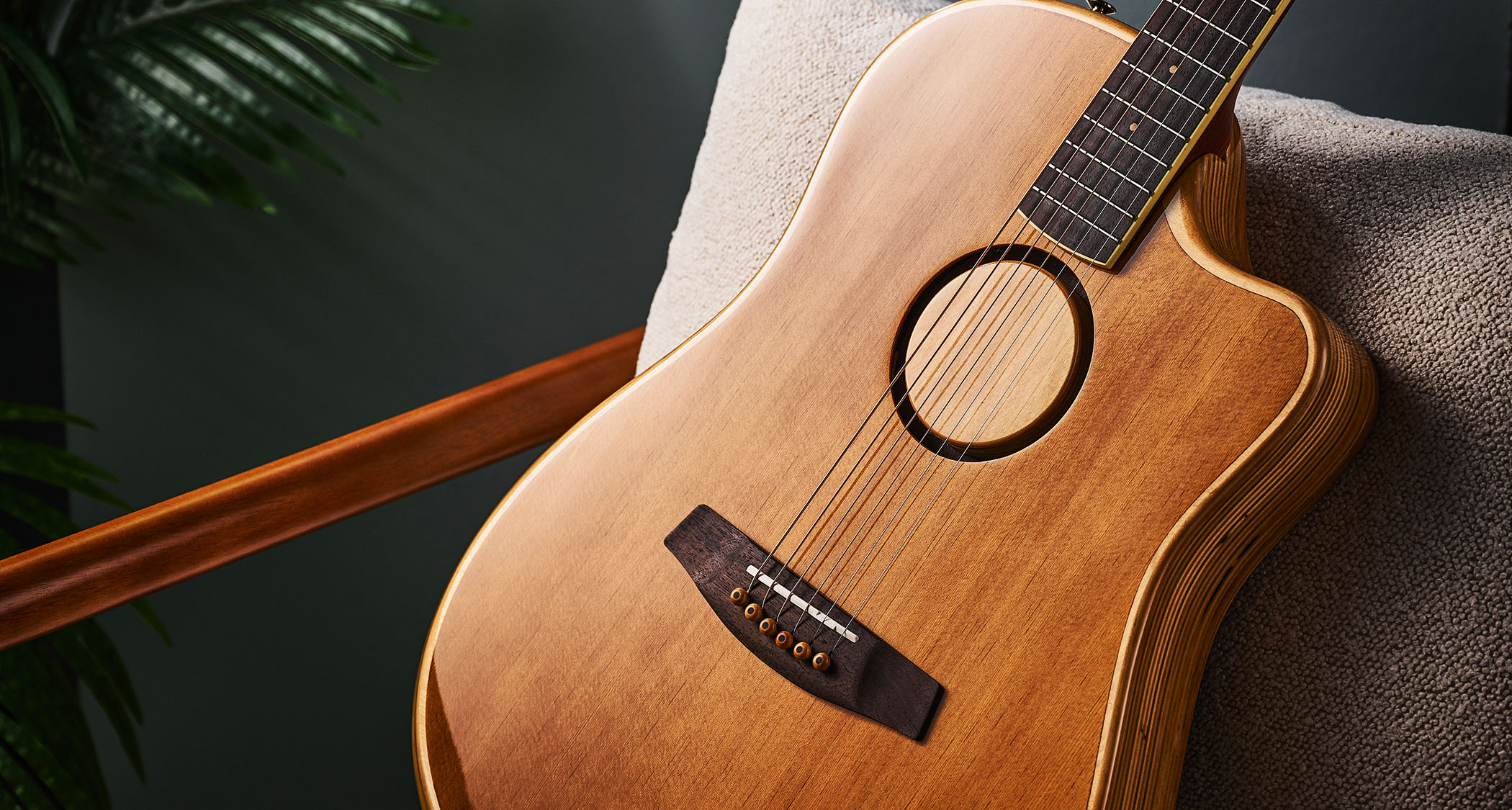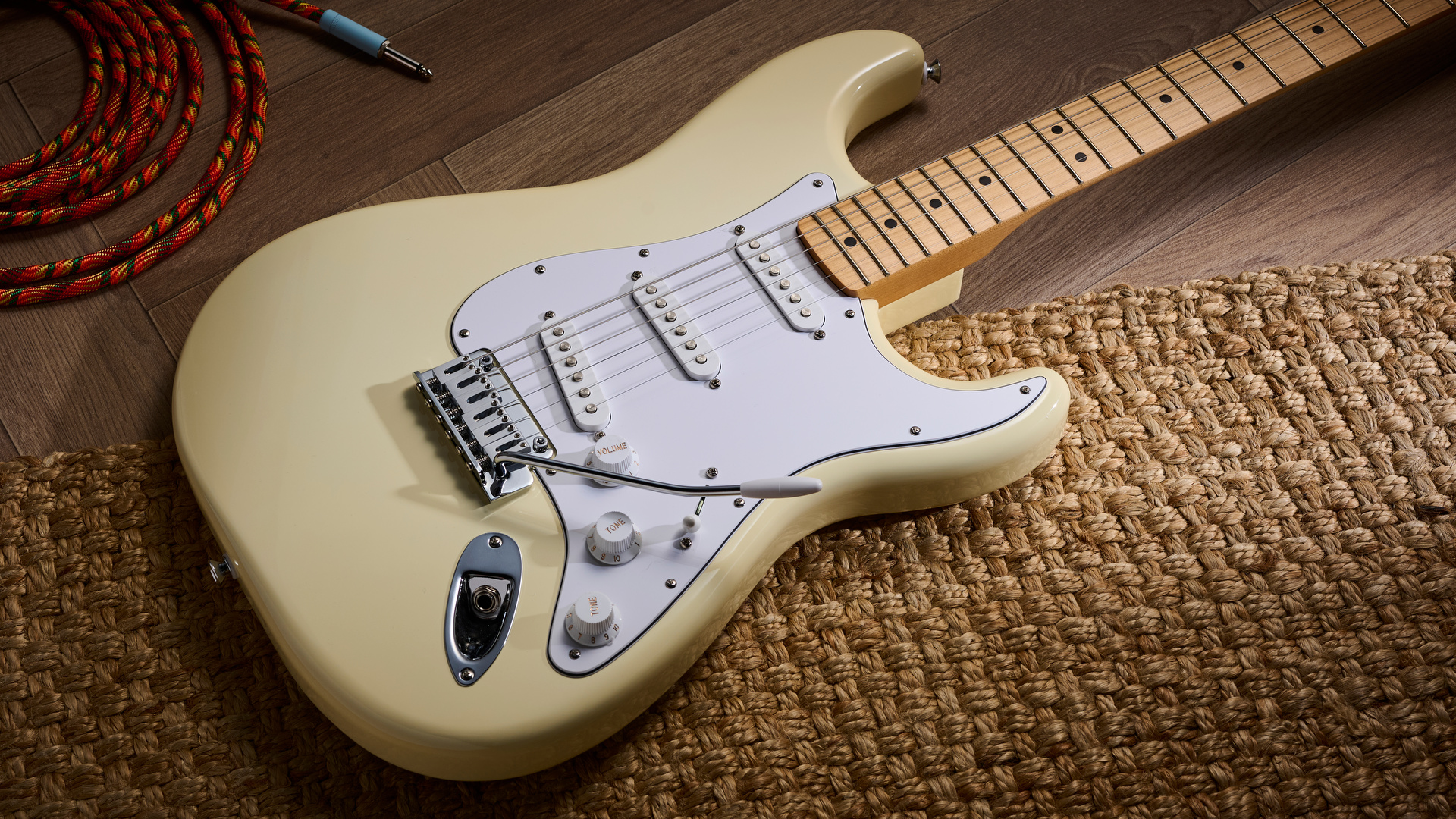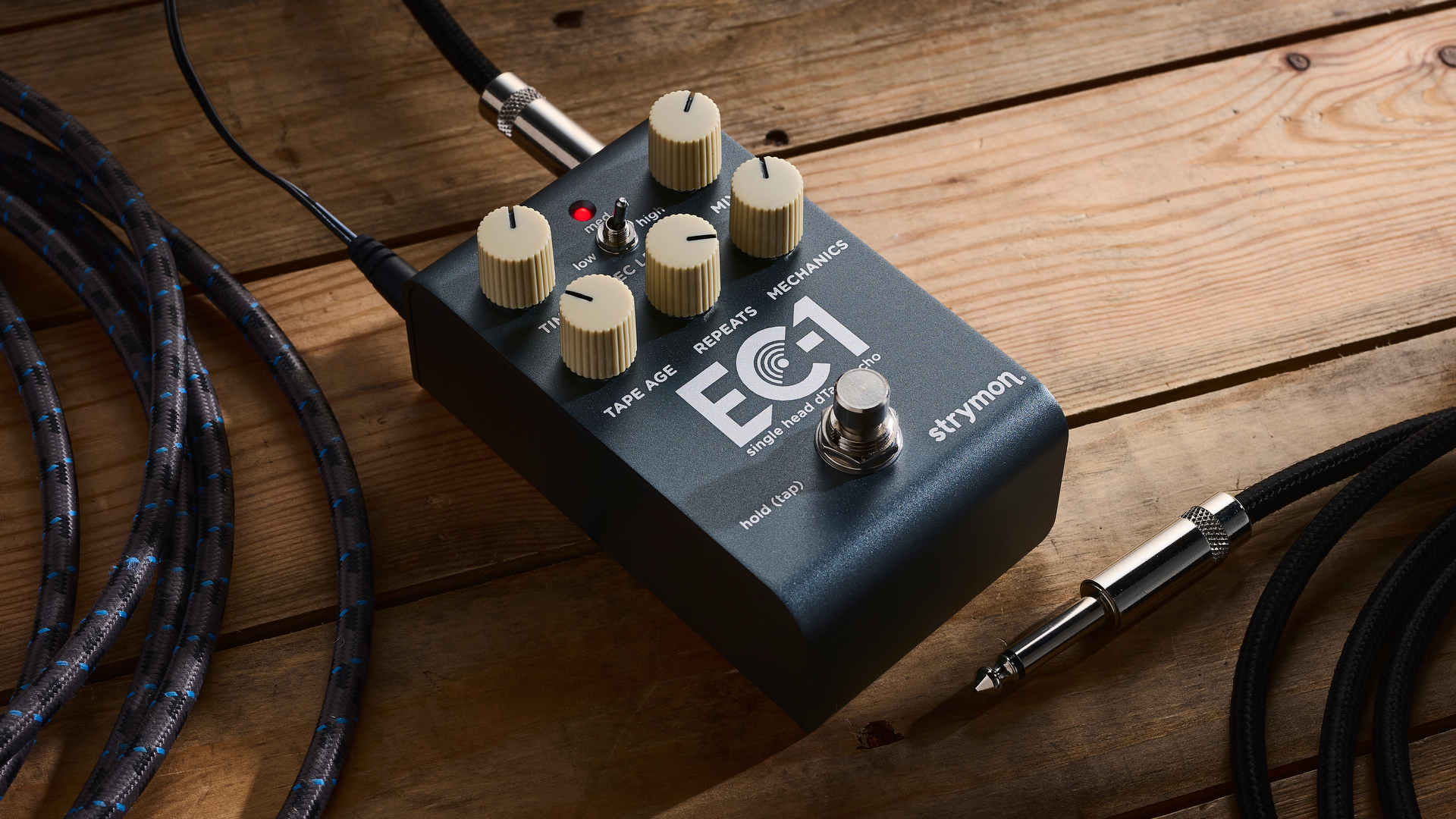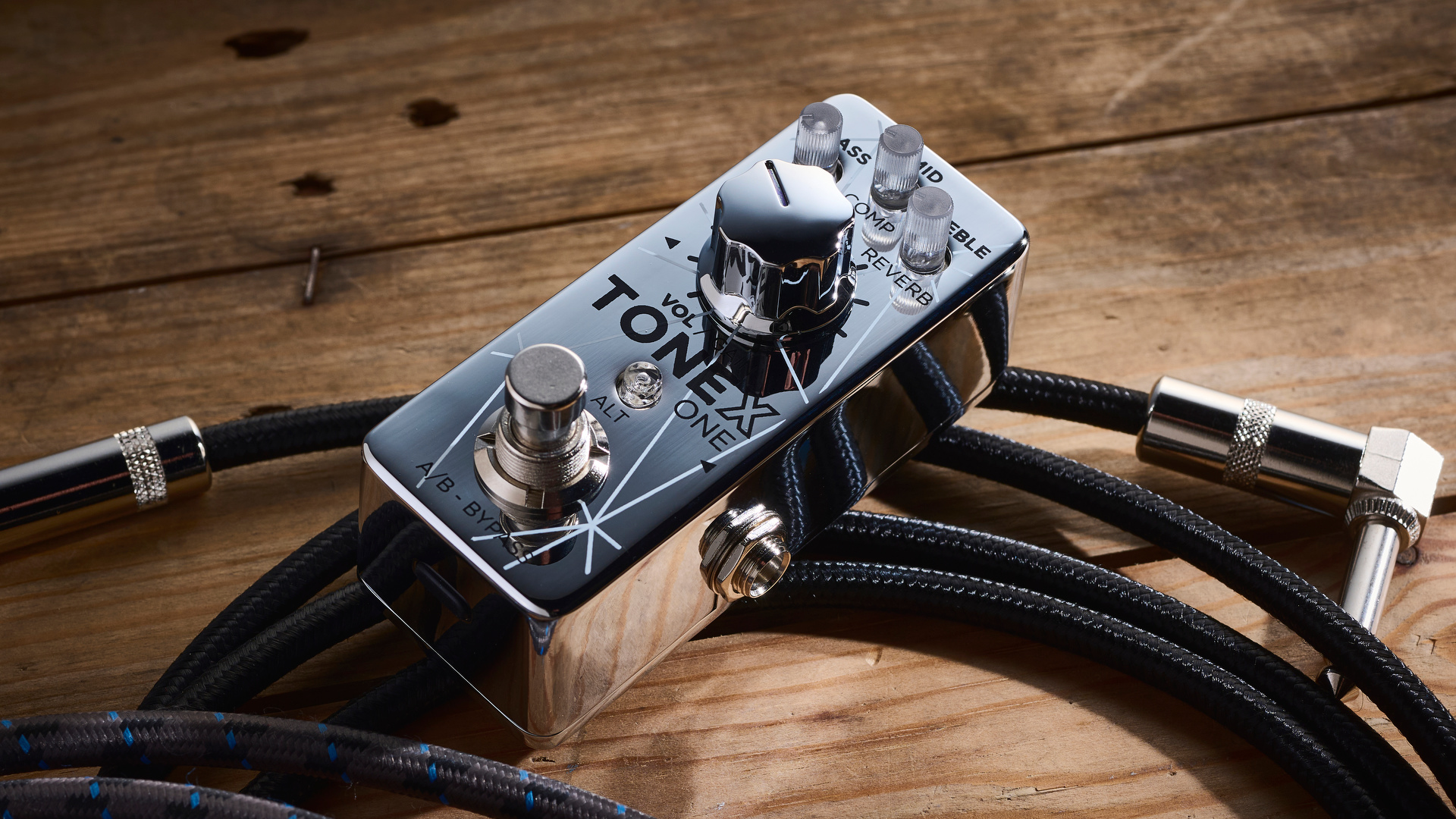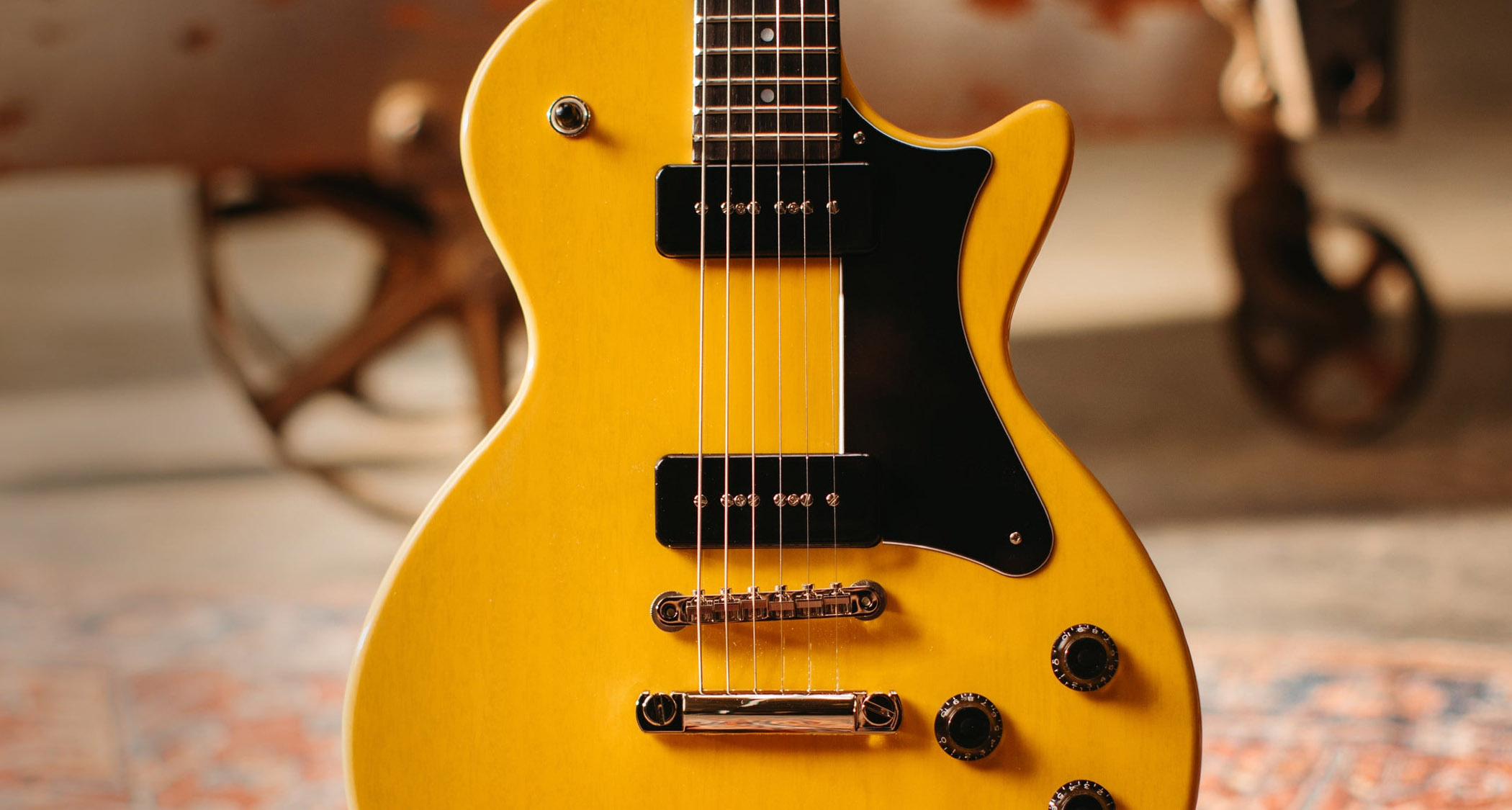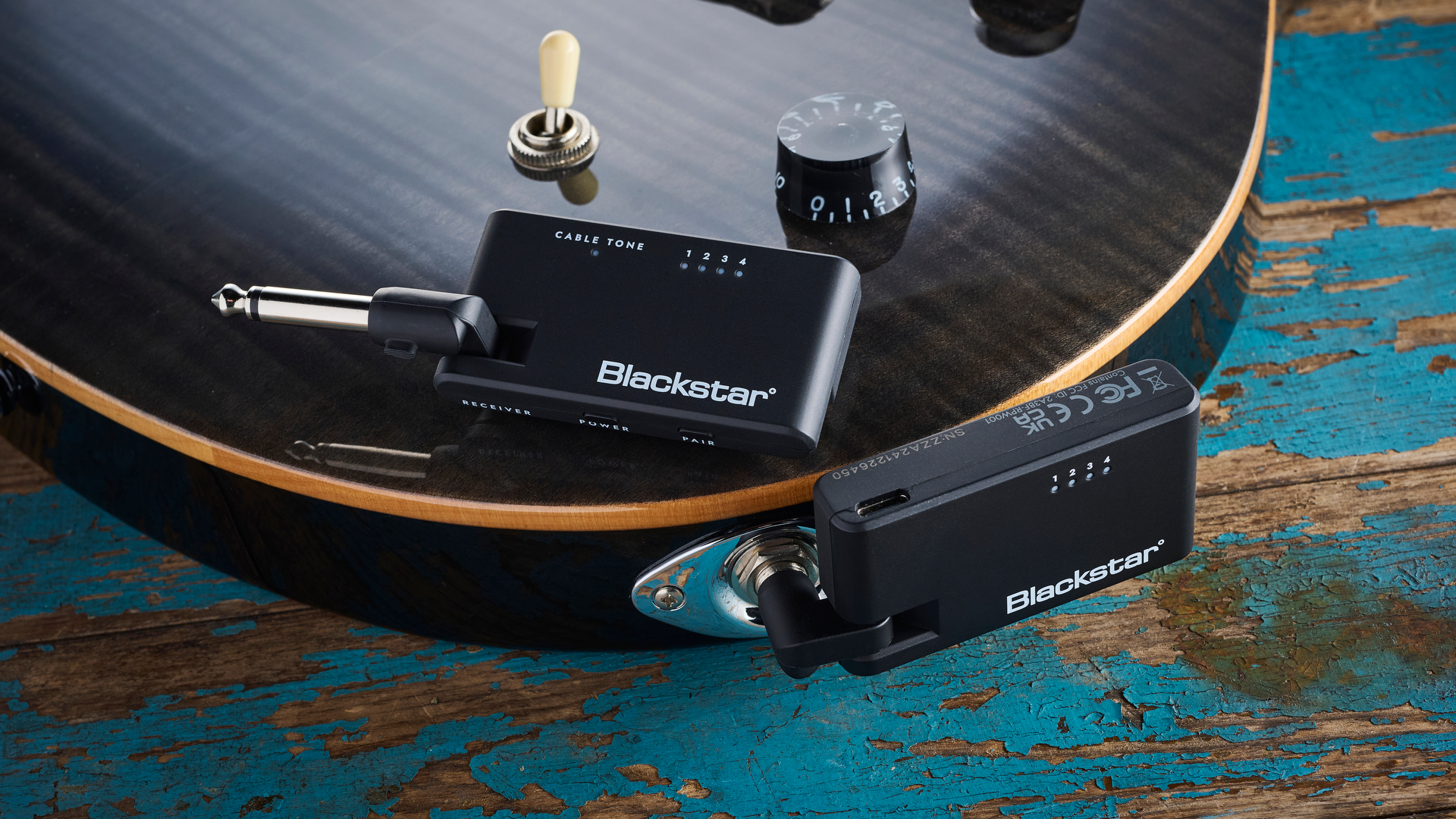Guitar World Verdict
Gretsch’s best release of the year, Jack Antonoff’s signature revives the long-forgotten Princess and combines it with some Jazzmaster style and flair. The result is a truly unique guitar, and a refreshing entry to the ever-growing signature market. A genuine joy to play, and quite unlike anything you’ll be able to find elsewhere.
Pros
- +
One of the most exciting and unique Gretsch signatures in years.
- +
A genuine delight to play.
- +
Excellent hybrid of Jazzmaster and vintage Princess designs.
Cons
- -
Expanded switching circuit might not be for everyone.
- -
Tremolo system not always the most reliable.
You can trust Guitar World
Gretsch Electromatic Jack Antonoff Signature "Princess Antonoff" CVT : What is it?
Gretsch has been on a formidable recruitment drive this year, signing up some of the biggest names in contemporary music. As well as launching artist guitars for Orville Peck, Portugal. The Man, and boygenius, the signature savvy firm – which sits under the Fender umbrella of brands – has now announced arguably its biggest new signing to date: Jack Antonoff.
The Grammy-winning super-producer and Bleachers frontman has worked with the likes of Taylor Swift, The 1975, and Sabrina Carpenter, and now he’s been given quite literally his dream electric guitar in recognition of his musical service.
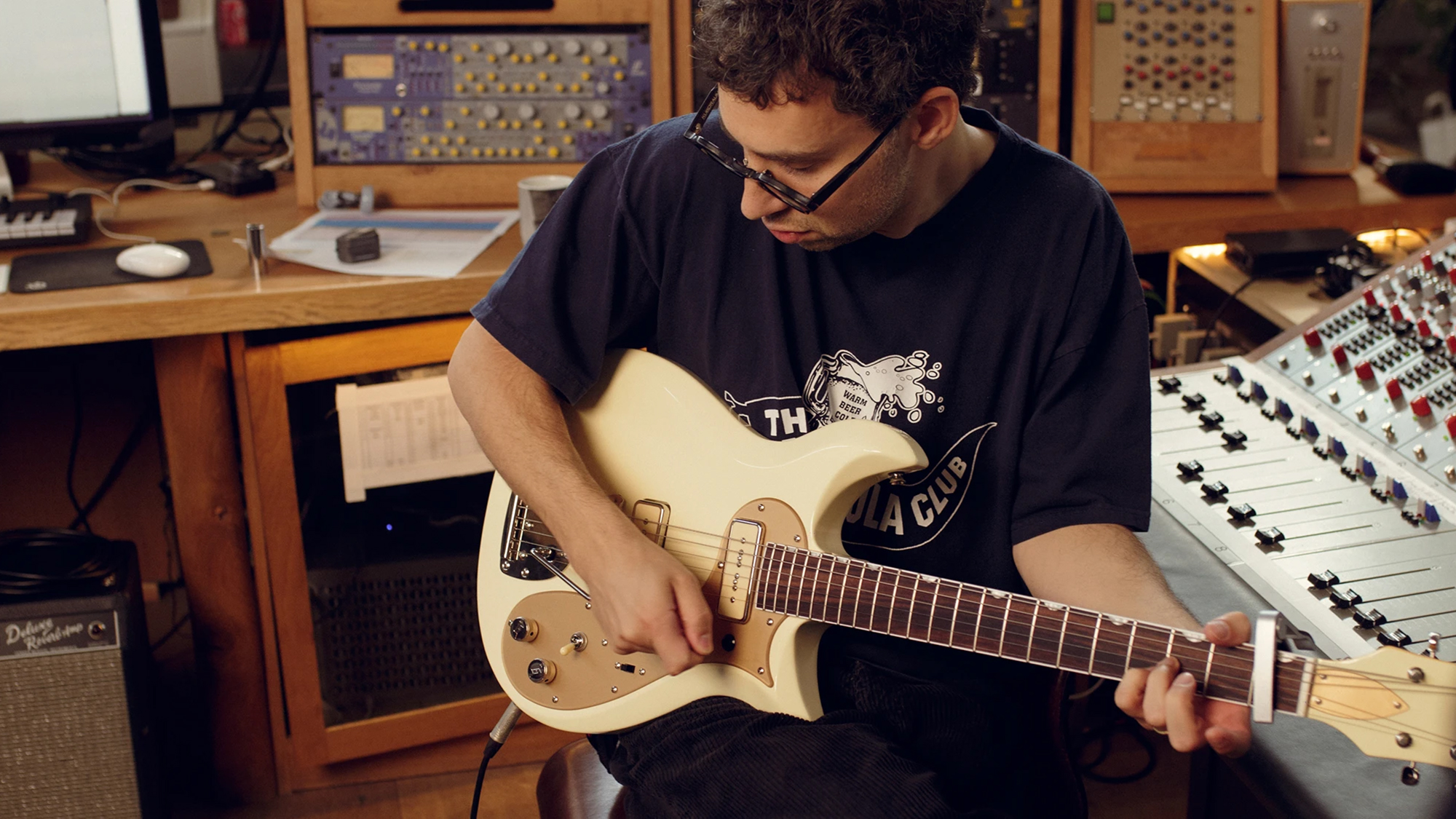
The “Princess Antonoff” Electromatic CVT is, simply, a hybrid design of two of Antonoff’s favorite guitars: a vintage Gretsch Princess and a Fender Jazzmaster. The result is a unique, undeniably stunning, in-between mash-up of models quite unlike anything Gretsch has put out before. But does it perform as good as it looks? Let’s find out…
Gretsch Electromatic Jack Antonoff Signature "Princess Antonoff" CVT: Specs
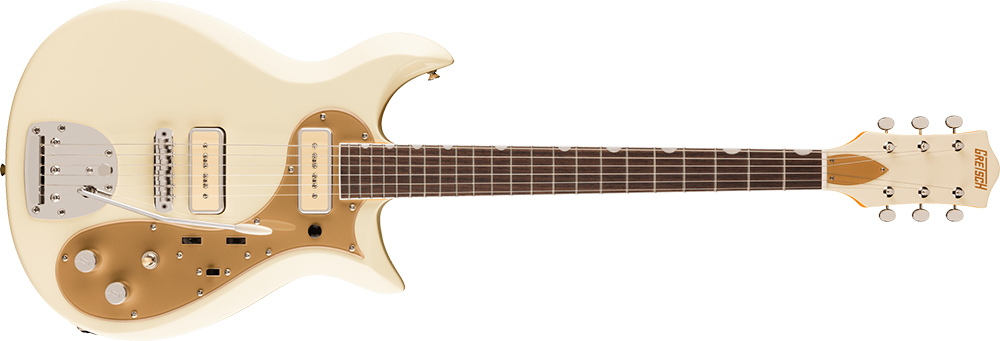
Launch price: £699 / $699 / €799
Made: China
Type: Six-string solidbody signature electric guitar
Body: Alder
Neck: C-shaped maple, satin finish, contoured neck joint, bolt-on
Fingerboard: Rosewood, bound, 7.25” radius, Neo-Classical pearloid thumbnail inlays
Scale length: 25.5” (647.7)
Nut/width: Bone/41.4mm
Frets: 22, medium jumbo
Hardware: Six-saddle floating bridge, vintage-style floating Jazzmaster tremolo w/ tremolo lock button and push-in tremolo arm, vintage-style tuners, G-Arrow control knobs
String spacing at bridge: 52mm
Electrics: Custom FideliSonic P-90 pickups / Master Volume, Master Tone / Three-position Toggle / Rhythm/Lead Switch / Rhythm Volume, Rhythm Tone / Kill Switch
Weight: 7.85lbs/3.56kg
Left-handed options: No
Finish: Vintage White
Case: Not included, Optional G2164 gig bag
Contact: Gretsch
Gretsch Electromatic Jack Antonoff Signature "Princess Antonoff" CVT: Build quality
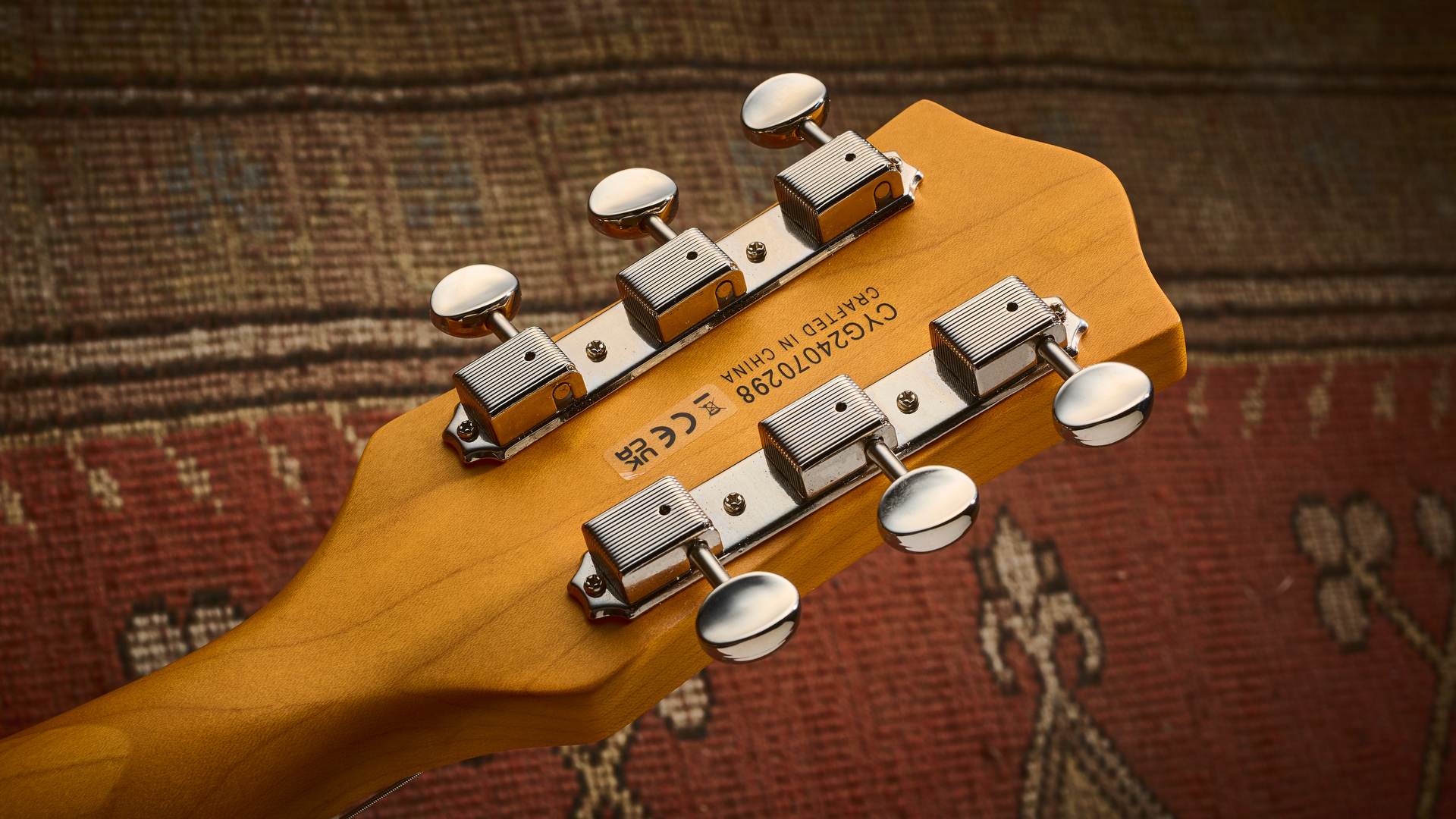
Build quality rating: ★★★★☆
Crafted in China – which has seen the QC of its instruments dramatically improve over the last few years, following renewed reliance on affordable outsourced guitar manufacturing in the wake of turbulent economic conditions – the Princess Antonoff is, at first glance, as solid as you’d expect from an offshore Gretsch.
Nothing seems untoward upon initial inspection, and dare we say it actually looks nicer in person. The Princess double-cut has some excellent comfort contours, including a nice but-not-too deep belly cut, and the neck joint is admirably executed.
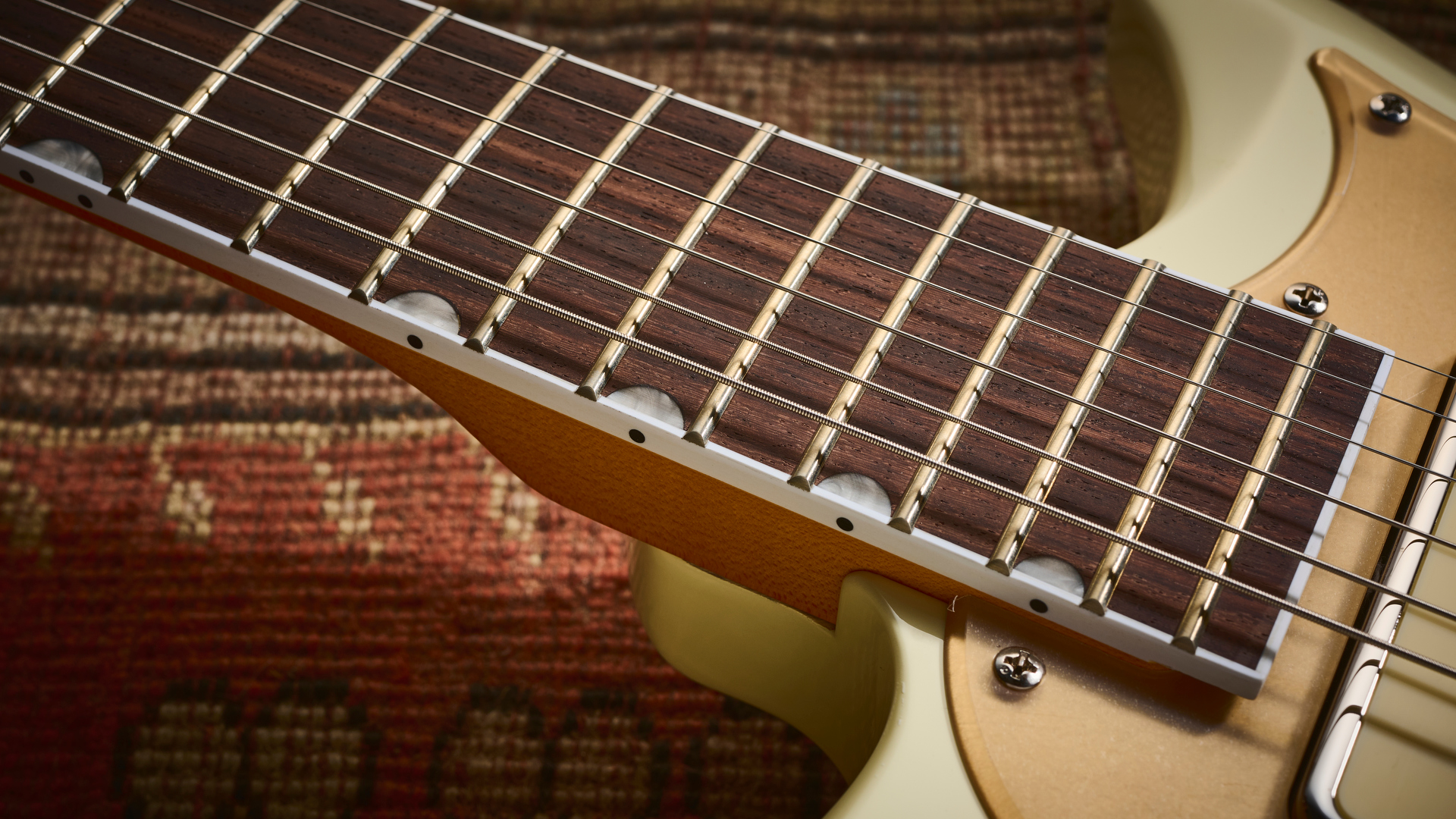
The frets on my example weren’t perfect, but there certainly are no sharp fret edges present, making maneuverability absolutely fine. The hardware is immaculately buffed and presented, and the switches all feel sturdy and robust (even if the three-way switch is annoyingly slightly askew). The neck, nut and tuners are all secure – nothing feels like it’s falling off – so, to play, this thing couldn’t be set up much better.
Under the microscope, our model had a few unsightly pickguard scratches that – although invisible under certain light – did somewhat spoil the otherwise near-perfect visage of the guitar. Still, such blemishes didn’t get in the way of actually playing the guitar, and wouldn't be a problem when taking this on the road. Speaking of which…
Gretsch Electromatic Jack Antonoff Signature "Princess Antonoff" CVT : Playability
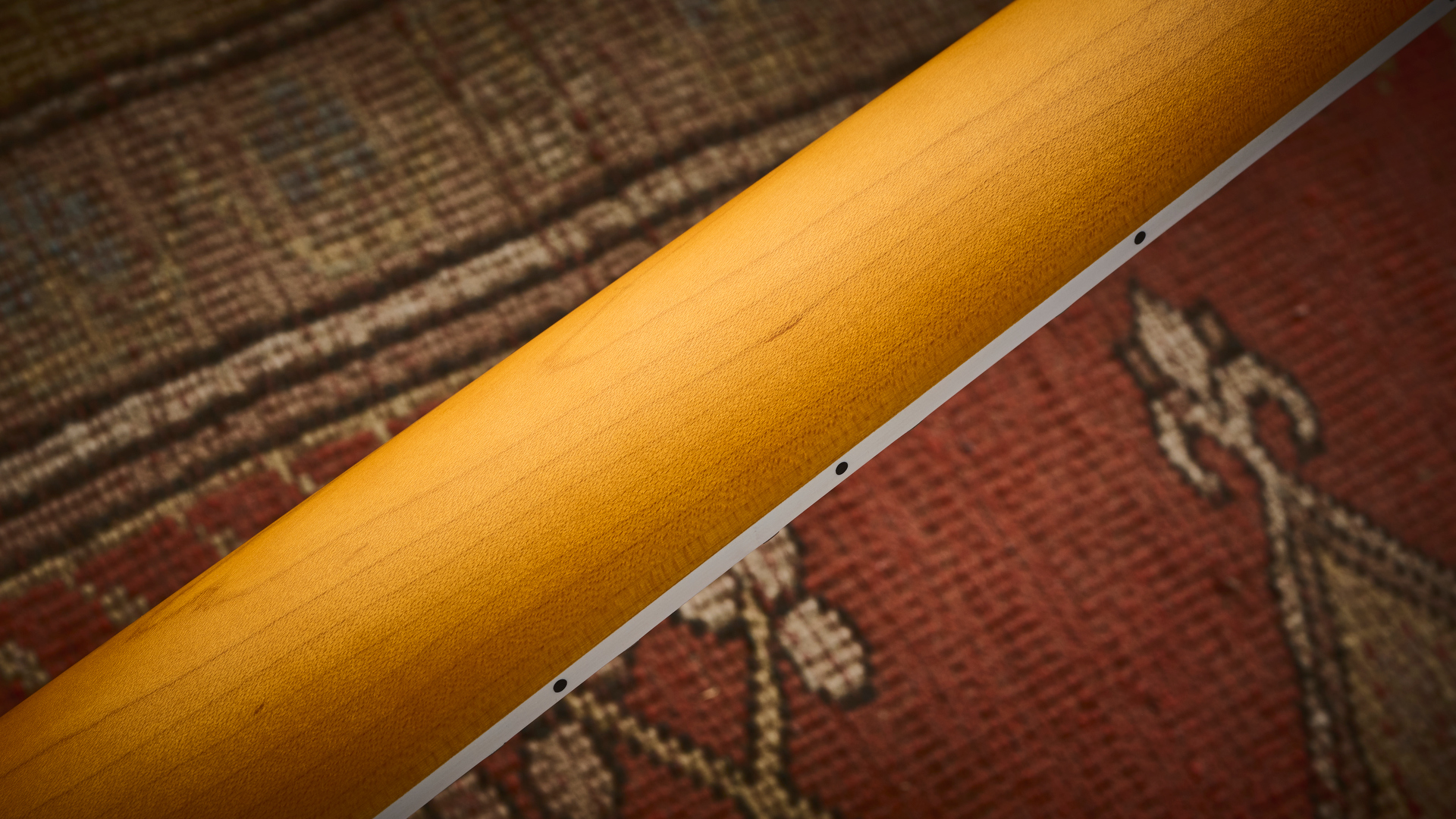
Playability rating: ★★★★☆
The decision to revive a long-gone Gretsch body is an absolute stroke of genius
There are a lot of moving parts here, but thanks to its impressive build quality and generous spec sheet, Antonoff’s signature guitar is a genuine joy to play. I had a keen eye on taking this for a test drive ever since the PR dropped in my inbox, and I’m happy to report it’s as fun as I imagined it to be.
The decision to revive a long-gone Gretsch body is an absolute stroke of genius, and the idea to spiritually pair it with a Jazzmaster deserves some sort of award.
There’s nothing too spectacular about the neck – the standard C-profile is nicely familiar – but the body itself feels very fresh and inspiring, owing to its ergonomics and shape. There is a slight catch, though.
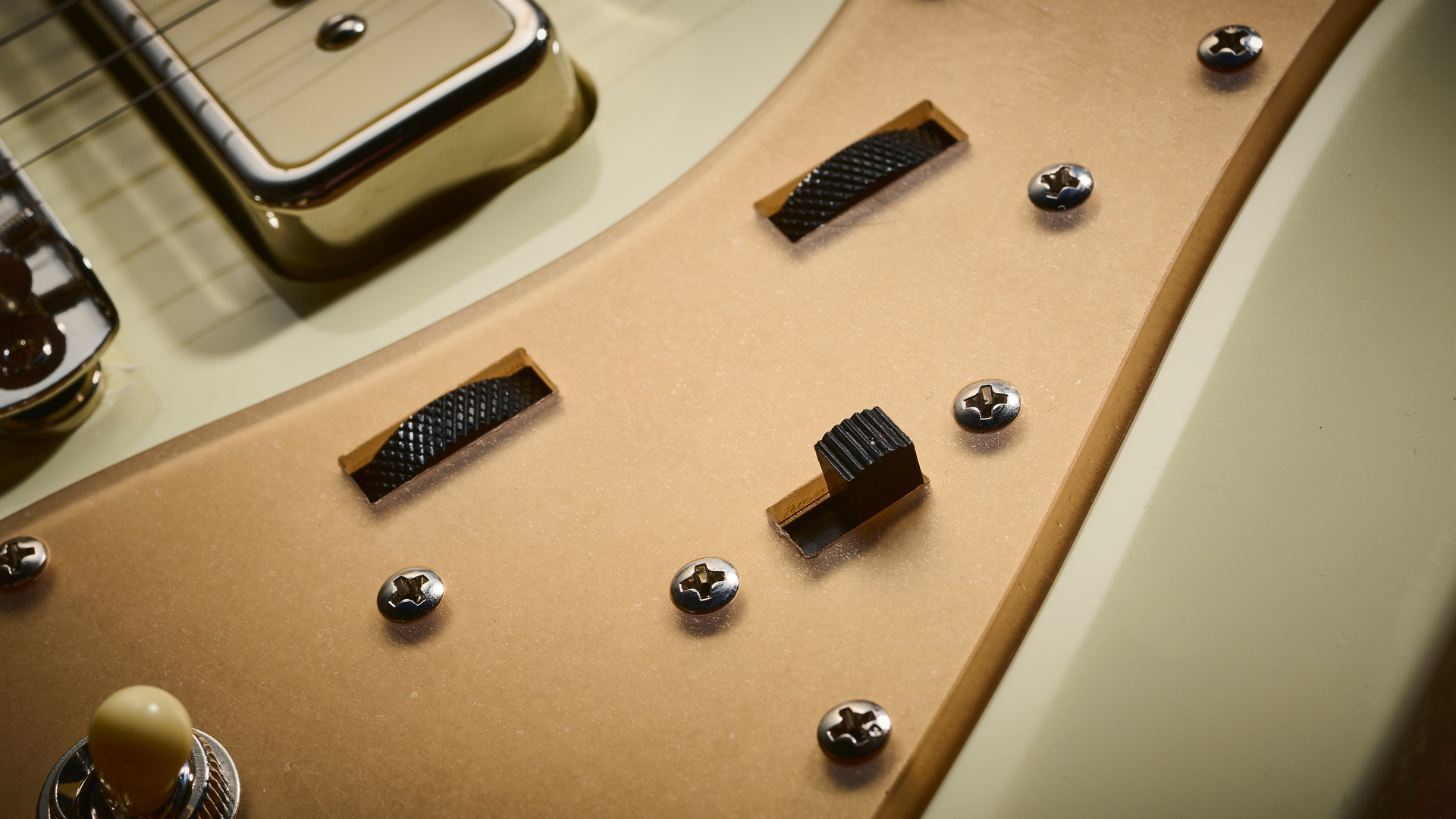
There’s not a lot of room down there, and making adjustments without brushing the strings can get some getting used to
The Princess Antonoff gave me the most joy when it was locked into a pickup position, dialed in, and didn’t have to worry about making off-the-cuff tweaks. You see, the decision to put the Jazzmaster switches below the strings – rather than above, as is the case on usual Jazzmasters – can give way to some awkward switching scenarios.
There’s not a lot of room down there, and making adjustments without brushing the strings can get some getting used to. The kill switch also feels a tad OTT, but we shouldn’t complain too much, given this was an Antonoff-requested spec. That said, it is nice to have the extended switching options of the Rhythm and Lead circuit, which turns this guitar from a regular Princess revival into a completely different beast in its own right.
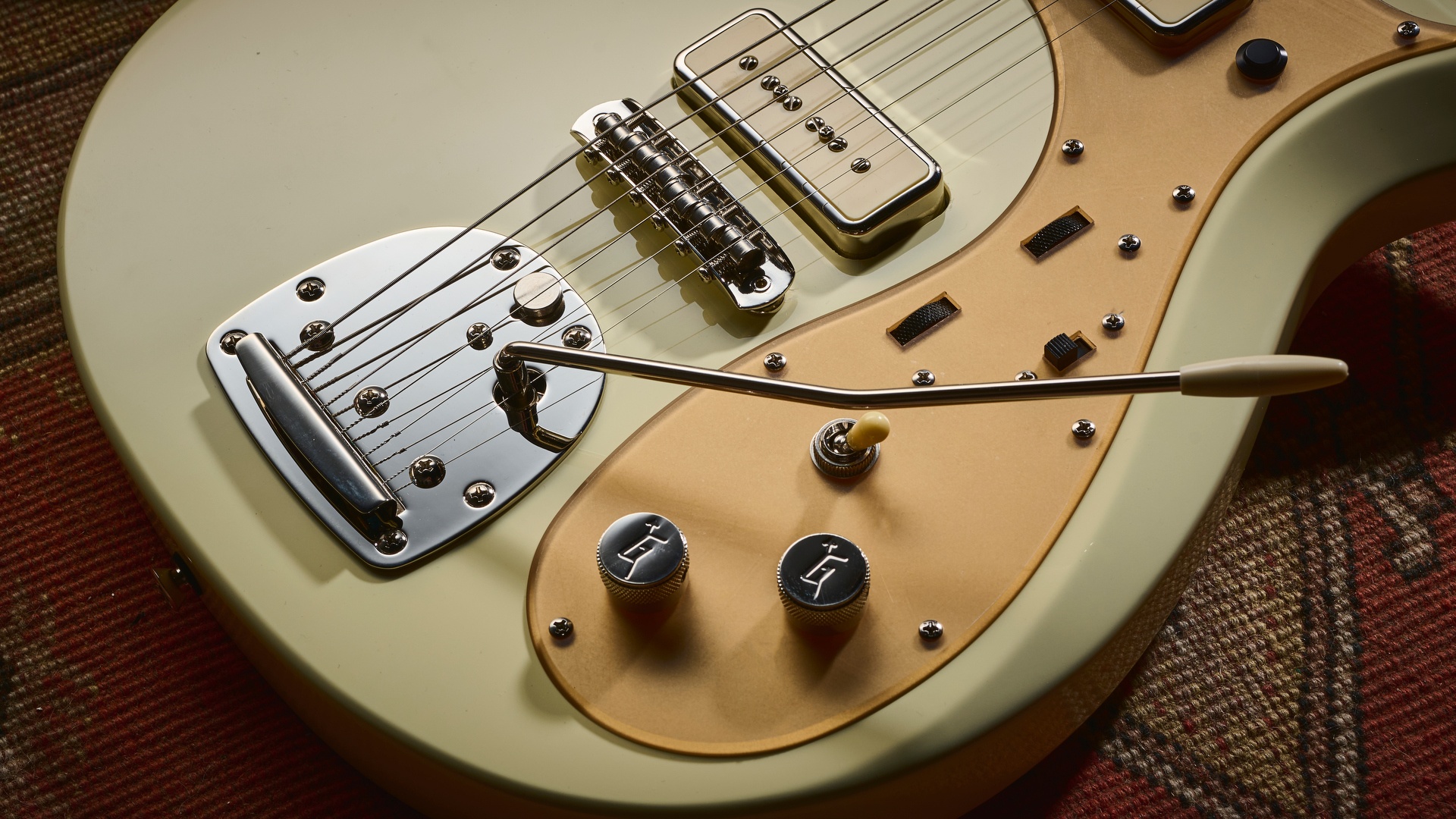
That said, some other Jazzmaster occupational hazards are present, too. These floating tremolos aren’t the most reliable when whammy-ing, and the not-very-secure pop-in design of the tremolo arm won’t be to everyone’s taste. Again, you know what you’re signing up for with this model, and these finicky qualms are vastly outweighed by the fact this guitar plays very well, and is indescribably fun to play. It also sounds great.
Gretsch Electromatic Jack Antonoff Signature "Princess Antonoff" CVT : Sounds
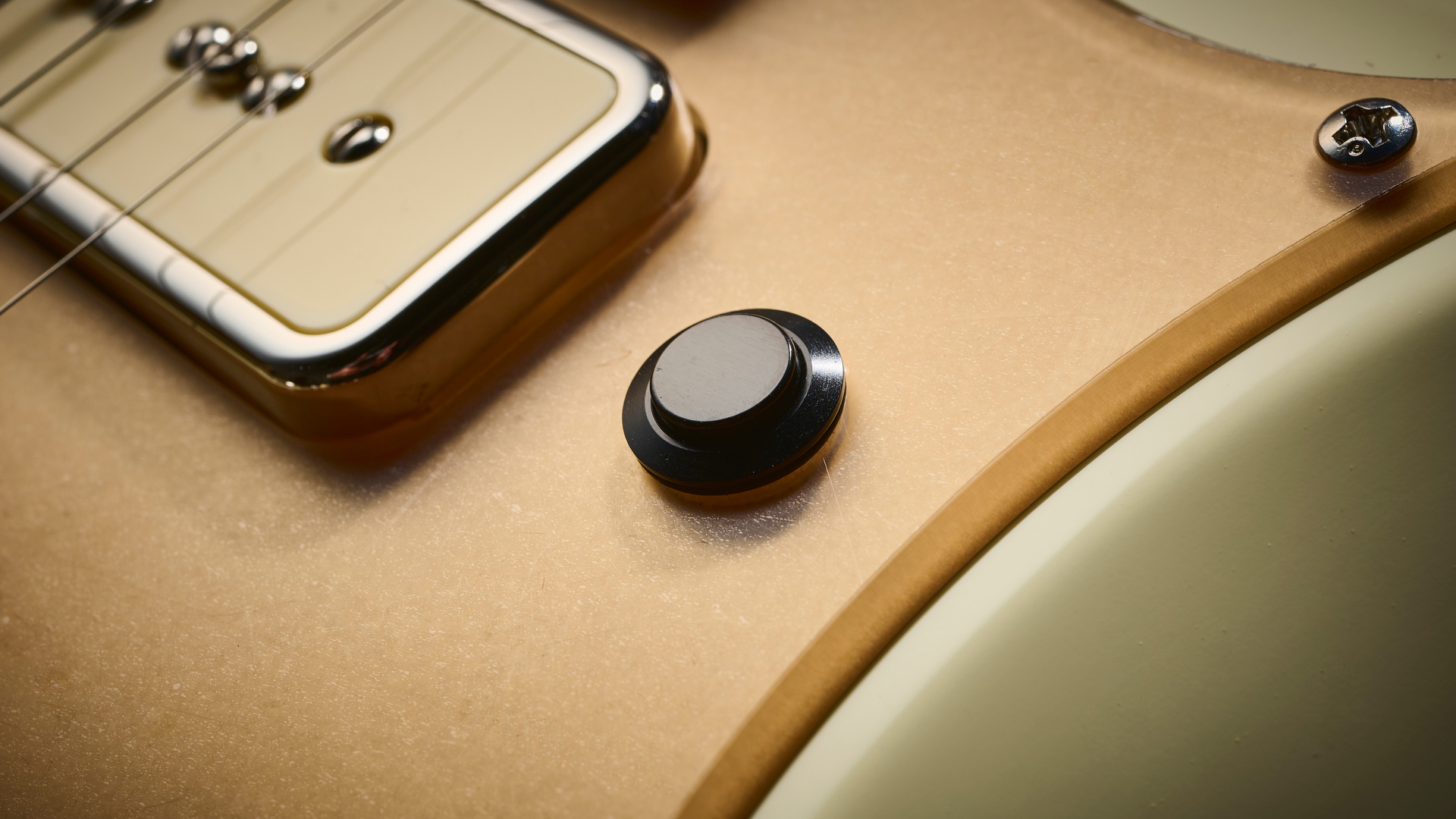
Sounds rating: ★★★★ ½
Gretsch guitars have a certain spice about them that you’d be hard-pressed to find on any other instrument. Chuck in some classic Fender switching and you’ve got all the ingredients for some truly excellent – and inspiring – tones.
The two Custom FideliSonics sound superb, both in isolation and together. Not quite single-coils, not quite ’buckers, they’ve been officially badged as P-90s, which is probably accurate. There’s some nice snarl and bite to them when fed some gain, but you can also get some incredibly glassy and pristine cleans should you wish.
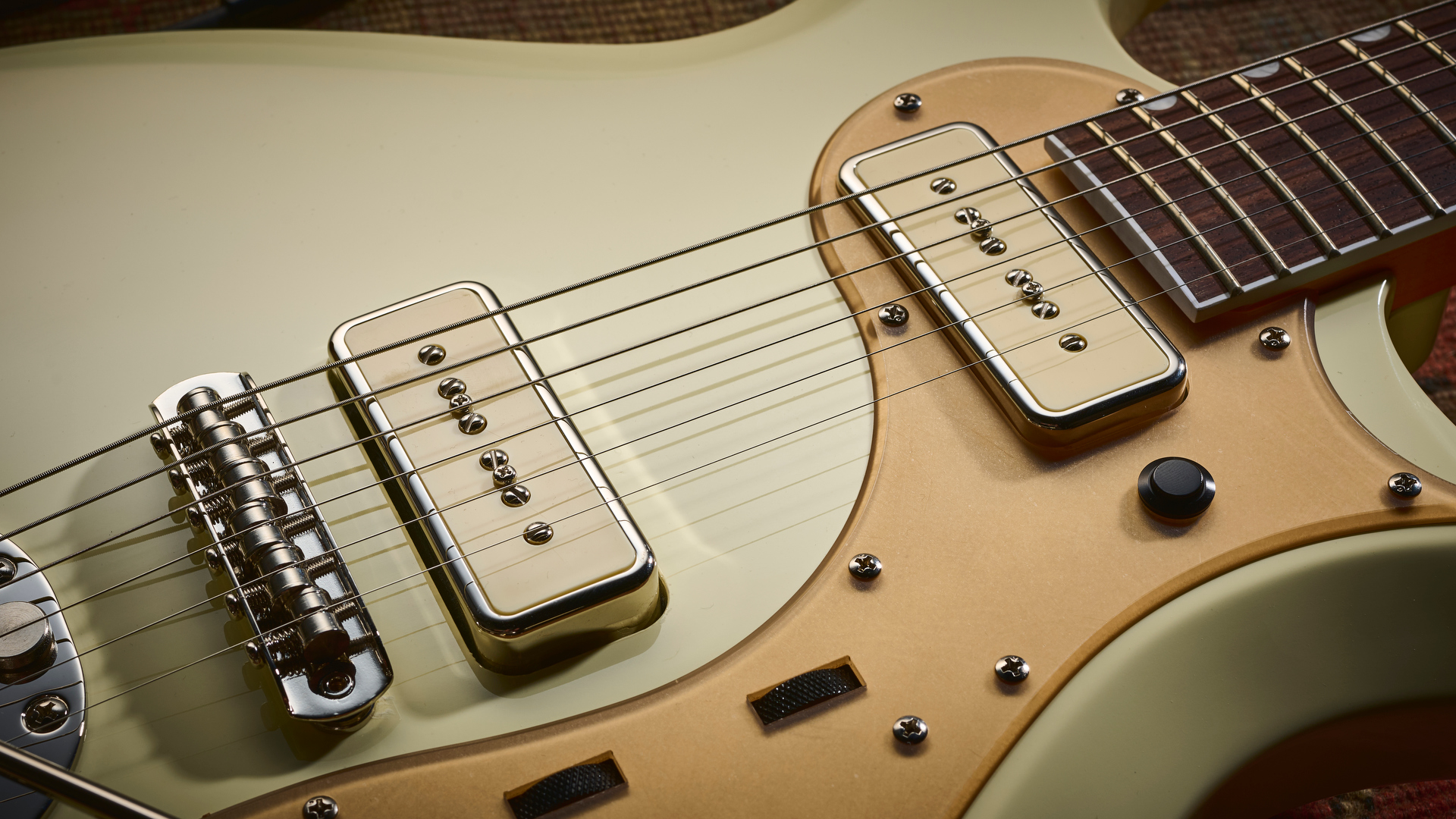
For those unaccustomed to a Rhythm/Lead circuit, this can get some getting used to, and at times it does seem that a simpler control layout would’ve been more than enough, such is the power of the pickups. For those who do like the expansive circuit, there are some nice options to experiment with here.
There is, naturally, the Rhythm/Lead rocker switch, which defaults to the neck pickup when the Rhythm mode is engaged. Here, two additional rollerblade switches for volume and tone can be used.
The Princess Antonoff can do quite a lot with its two pups, and you’ll never be short of highly usable tones
This is sonically different from just slapping the three-way toggle into the neck position – the Rhythm model is beefier, chunkier and darker, better for (you guessed) punchier rhythms, as it bypasses the main control layout for another circuit. Elsewhere, the Lead mode then lets the three-way toggle switch do its thing, and that’s where the regular Volume and Tone knobs come into play.
That’s a long-winded way of saying, the Princess Antonoff can do quite a lot with its two pups, and you’ll never be short of highly usable tones. It’s the same sorts of tones that Antonoff is taking to the stage now, so if it’s good enough for him… you get the gist.
Gretsch Electromatic Jack Antonoff Signature "Princess Antonoff" CVT : Verdict
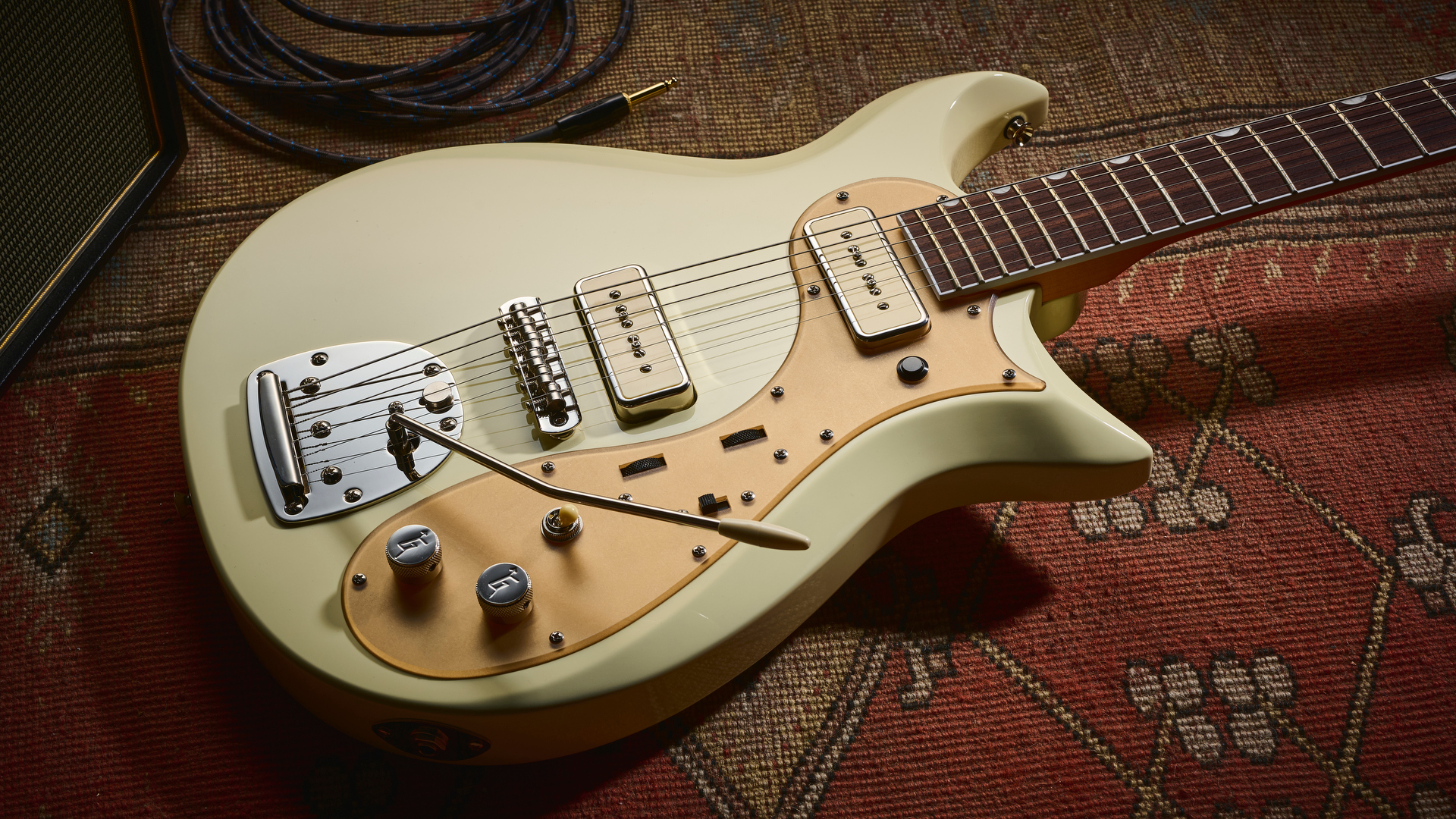
The Jack Antonoff Princess is hands-down one of my favorite releases of the year, and all I can really say is, fairplay to Gretsch for giving its newest signature artist the remit to design a genuinely new and inspiring creation. Not only does it revive one of Gretsch’s finest vintage designs, it does so with an ingenious twist.
This brings something new to the table
In a world where Artist Series models are often factory guitars with a signature slapped to the headstock, this represents a genuinely refreshing approach. Granted, not everything sticks the landing, but I’d rather play a guitar that takes a few risks (and delivers a great playing experience in the process) than play a slightly tweaked version of a guitar I’ve played a thousand times before.
This brings something new to the table, and with the market seemingly flooded with the same ol’ models nowadays, what more could you really ask for?
Final verdict: Gretsch’s best release of the year, Jack Antonoff’s signature revives the long-forgotten Princess and combines it with some Jazzmaster style and flair. The result is a truly unique guitar, and a refreshing entry to the ever-growing signature market. A genuine joy to play, and quite unlike anything you’ll be able to find elsewhere.
| Test | Results | Score |
|---|---|---|
| Build quality | A few small issues | ★★★★☆ |
| Playability | Switching position takes adjustment | ★★★★☆ |
| Sounds | The pickups offer excellent P-90 voices | ★★★★1/2 |
| Overall | A fresh take on a vintage design | ★★★★☆ |
Gretsch Electromatic Jack Antonoff Signature "Princess Antonoff" CVT : Also try
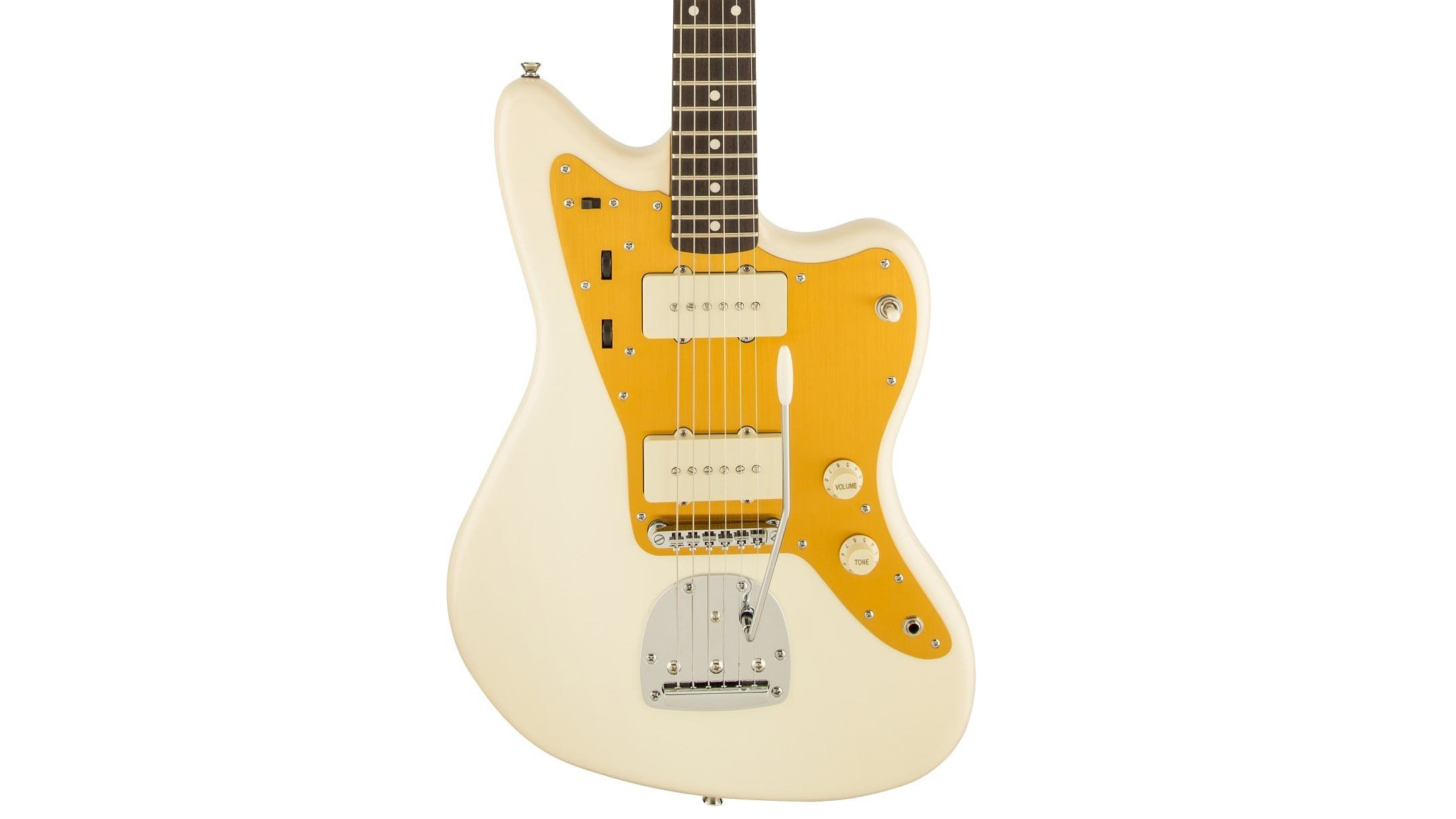
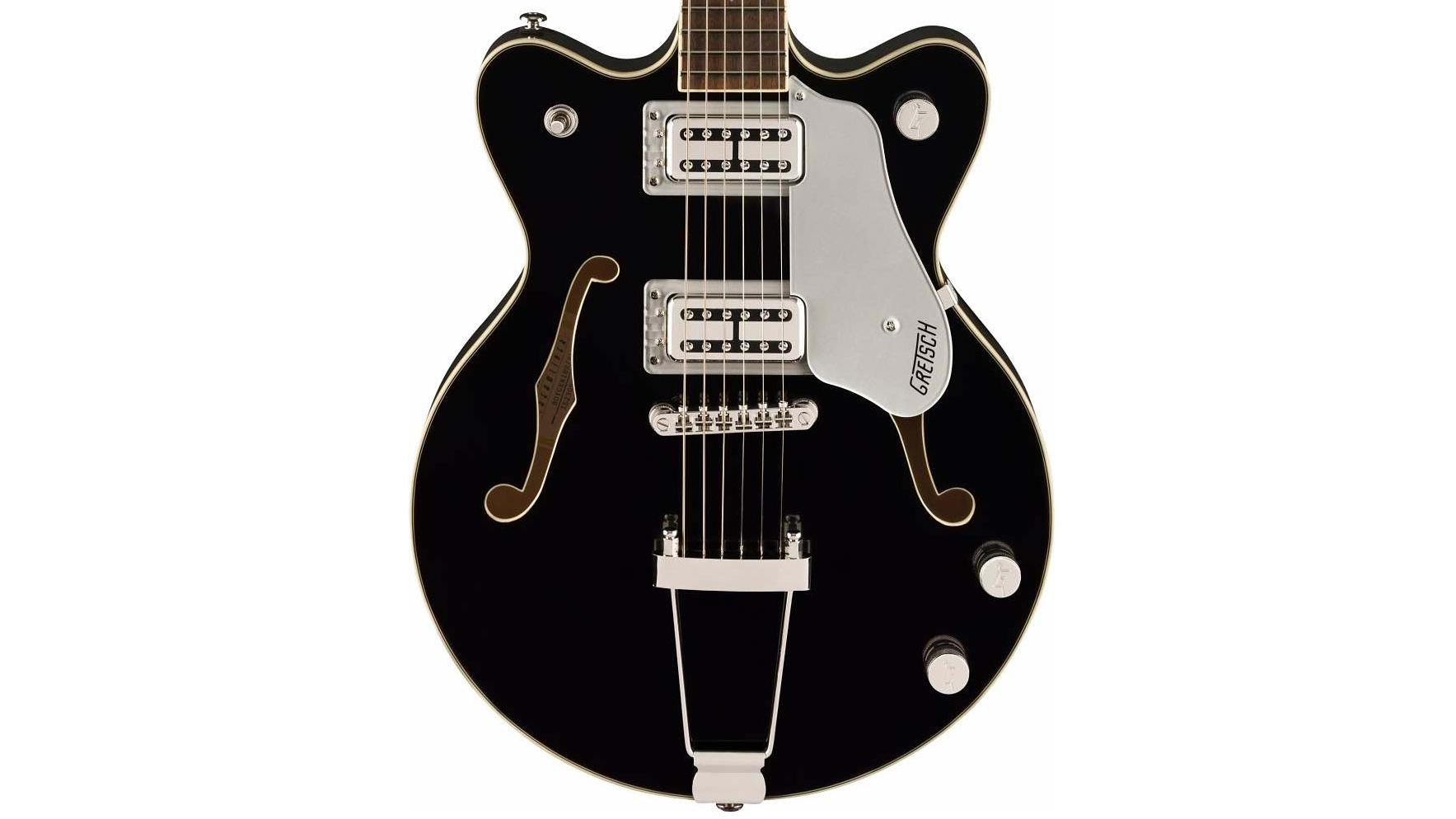
$699/£650
Another one of Gretsch's stand-out signatures from the year that will cater to more traditional Gretsch fans – but good luck finding this very limited edition.
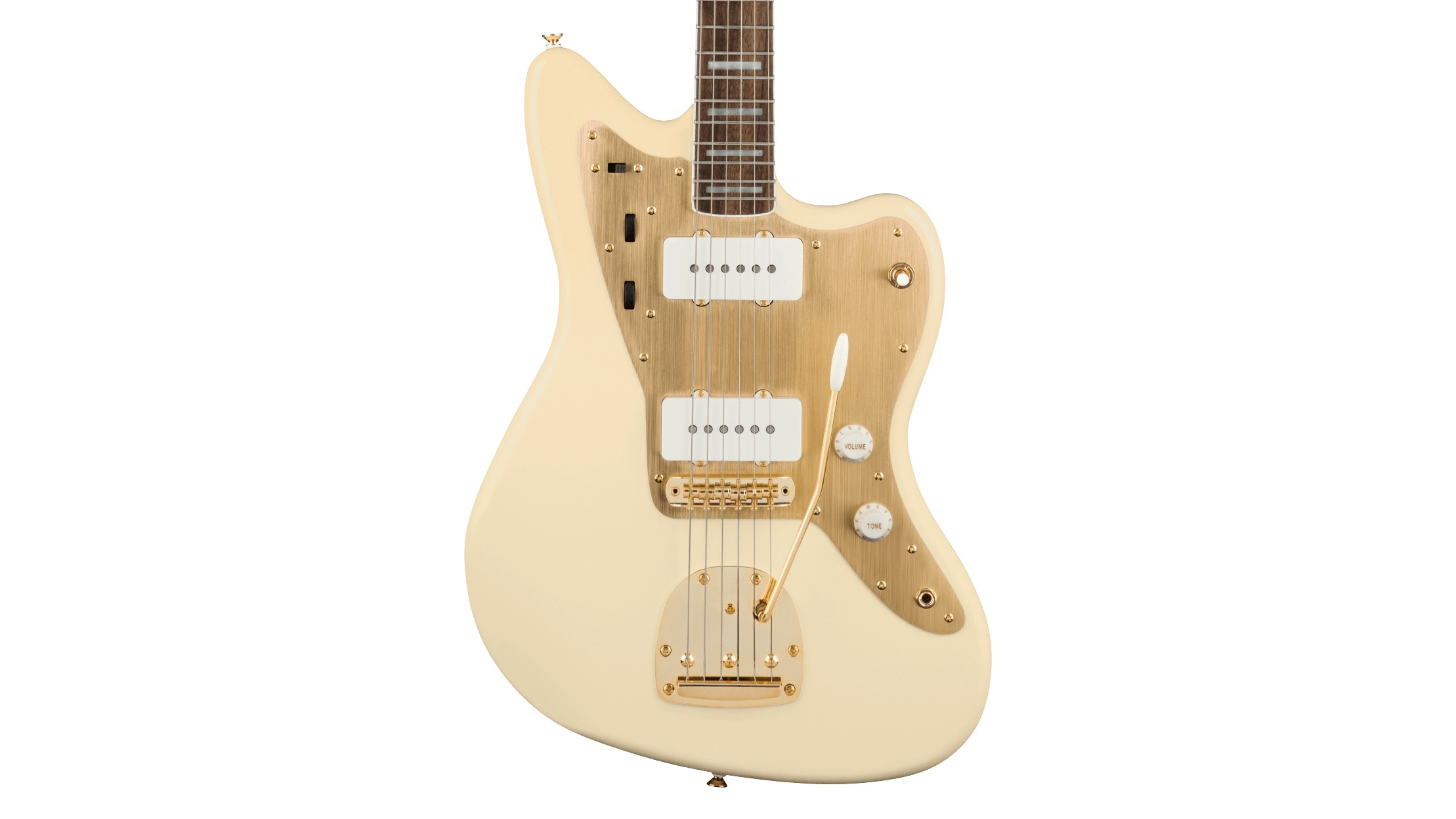
$599/£499
Similar to the J Mascis Jazz, this white-and-gold beauty harks back to the vintage Fender that Antonoff
Read our review
Gretsch Electromatic Jack Antonoff Signature "Princess Antonoff" CVT : Hands-on videos
Gretsch
Lark Guitars

Matt is the GuitarWorld.com News Editor. He has a Masters in the guitar, a degree in history, and has spent the last 16 years playing everything from blues and jazz to indie and pop. When he’s not combining his passion for writing and music during his day job, Matt records for a number of UK-based bands and songwriters as a session musician.
“I liked that they were the underdogs. It was not the mainstream guitar. It was something that was hard to find”: Vox guitars deserve a second look – just ask L.A. Witch’s Sade Sanchez, who’s teaming hers with ugly pedals for nouveau garage rock thrills
“I suppose I felt that I deserved it for the amount of seriousness that I’d put into it. My head was huge!” “Clapton is God” graffiti made him a guitar legend when he was barely 20 – he says he was far from uncomfortable with the adulation at the time
“I was in a frenzy about it being trapped and burnt up. I knew I'd never be able to replace it”: After being pulled from the wreckage of a car crash, John Sykes ran back to his burning vehicle to save his beloved '76 Les Paul
